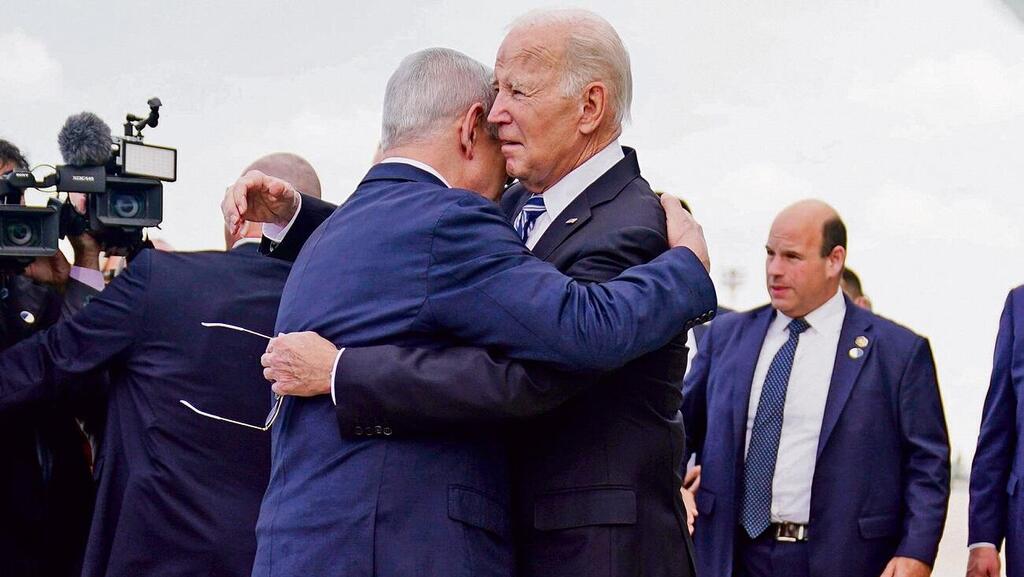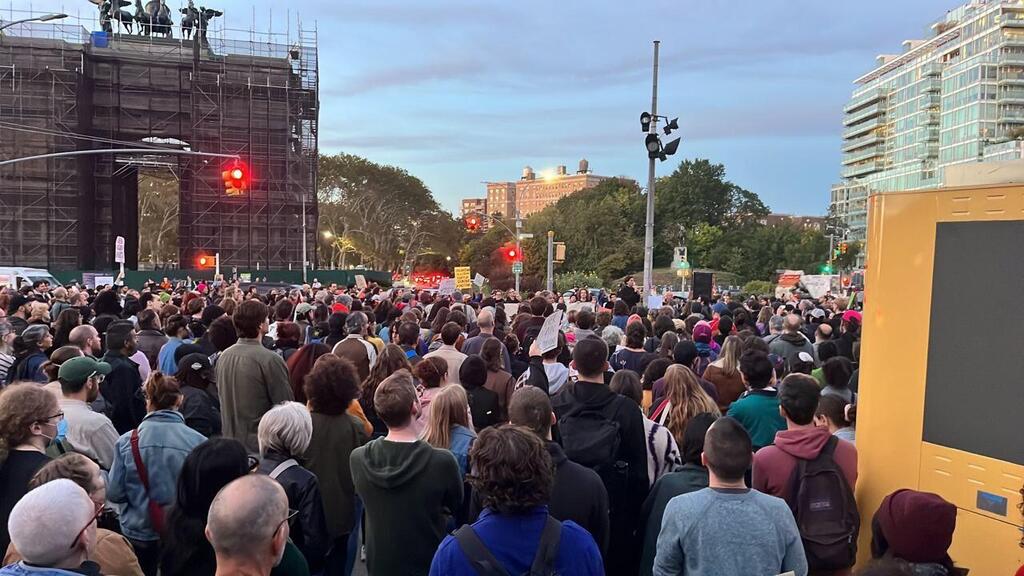In the wake of Hamas’ October 7 massacre, United States President Joe Biden went in for a bear hug. In one of Israel’s most dire moments, the leader of the free world and self-described lifelong Zionist visited the Jewish state to console and support, and remind a wounded and dazed nation that he had their back.
Read more:
The bear hug applied, too, to Israeli Prime Minister Benjamin Netanyahu. He and Biden have a decades-long relationship, and a complicated one at that.
3 View gallery


Prime Minister Benjamin Netanyahu embraces U.S. President Joe Biden in October
(Photo: AP)
It is hard to remember at this point, but in the lead up to October 7, one of the big political controversies in Israel was the lack of an invitation to the White House by Biden to Netanyahu, and the apparent compromise meeting they had on the sidelines of the United Nations General Assembly in New York just two weeks before the attack.
The aftermath of Hamas’ attack gave Biden an opportunity to open his arms and Netanyahu to receive him without either looking weak.
When you give someone a bearhug, it means you have an opportunity to talk to them, right in their ear, where no one else can hear the conversation. And they have no choice but to listen. That bear hug continued in the weeks and months following October 7, until Biden felt those private messages – about Israel’s prosecution of the war, the rhetoric of some of its hard-line coalition members, the potential fire brewing in the West Bank – simply weren’t getting through.
That bear hug has turned into a stiff arm
Increasingly sensing the electoral consequences of his refusal to demand a unilateral halt to Israel’s operations against Hamas, and that his counterpart in Jerusalem wasn’t willing or able (or both) to take the same political risks, Biden began taking his administration’s increasing private admonishments more public.
Now, it seems Biden has pieced together a strategy, in a roundabout way, based on the ideology of the progressive wing of his party.
Look to statements by the likes of Senators Chuck Schumer, Bernie Sanders, Elizabeth Warren and their ilk on the other side of Capitol Hill. The messages from that camp consistently identify “Netanyahu” almost interchangeably with “Israel,” linking the two together as if they are one and the same.
It’s actually been a longtime strategy of Netanyahu himself, though obviously with a different aim in mind.
Biden has adopted it and put his own spin on it, attempting to differentiate what he feels he wants to continue to support (Israel) and what he seemingly wishes to contain or discard (Netanyahu and his right-wing alliances).
It is summed up in Biden’s comment this week that Netanyahu is “hurting Israel more than helping Israel,” which is almost certainly the strongest language the U.S. president has used publicly toward an ally since becoming commander-in-chief.
Planting the idea that Netanyahu is doing more harm than good, at a time when every decision has major and long-lasting consequences, and at a moment of extreme political weakness for the Israeli prime minister, was meant to sting.
Couple that with the invitation that Netanyahu’s rival and fellow War Cabinet member Benny Gantz received to meet with high-level administration officials in Washington, and it paints a picture of a White House reaching a turning point.
And yet…
Biden still refuses to back calls for an immediate cease-fire at the United Nations Security Council, isolating America diplomatically. He still refuses to condition military aid, despite growing calls from within his party. Not because of Netanyahu. But because of Israel.
Much of the talk about this war has been about the day after: The day after Hamas’ rule in Gaza. The day after Palestinian Authority President Mahmoud Abbas steps down (or is forced out).
It is increasingly noticeable that Biden is thinking about another day after: The day after Netanyahu, when he can go back to regaling people about his talks with former Israeli prime ministers Golda Meir and Menahem Begin, and when he can tout his proclaimed love affair with Israel without being heckled with chants of “Genocide Joe” by protesters.
Netanyahu soon will likely have to make another choice with long-lasting consequences: whether to ride it out with Biden and see where it goes, or roll the dice and send signals that he prefers another Trump administration, and take a chance on a man who laid out his own very public criticism of the Israeli premier and is unpredictable, at best.
And Biden will likely soon have to decide whether it is actually possible, in practice, to separate Netanyahu, who has run the country for 16 years, from Israel, all the way from Washington.



